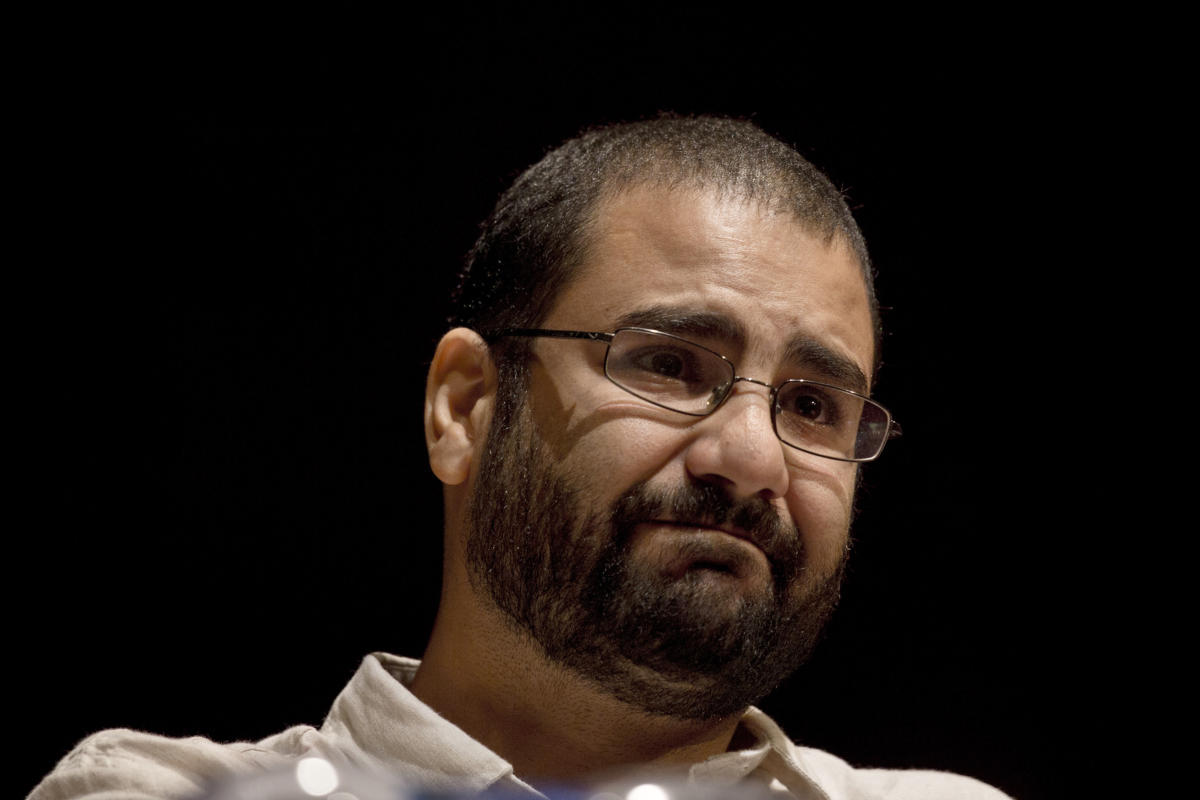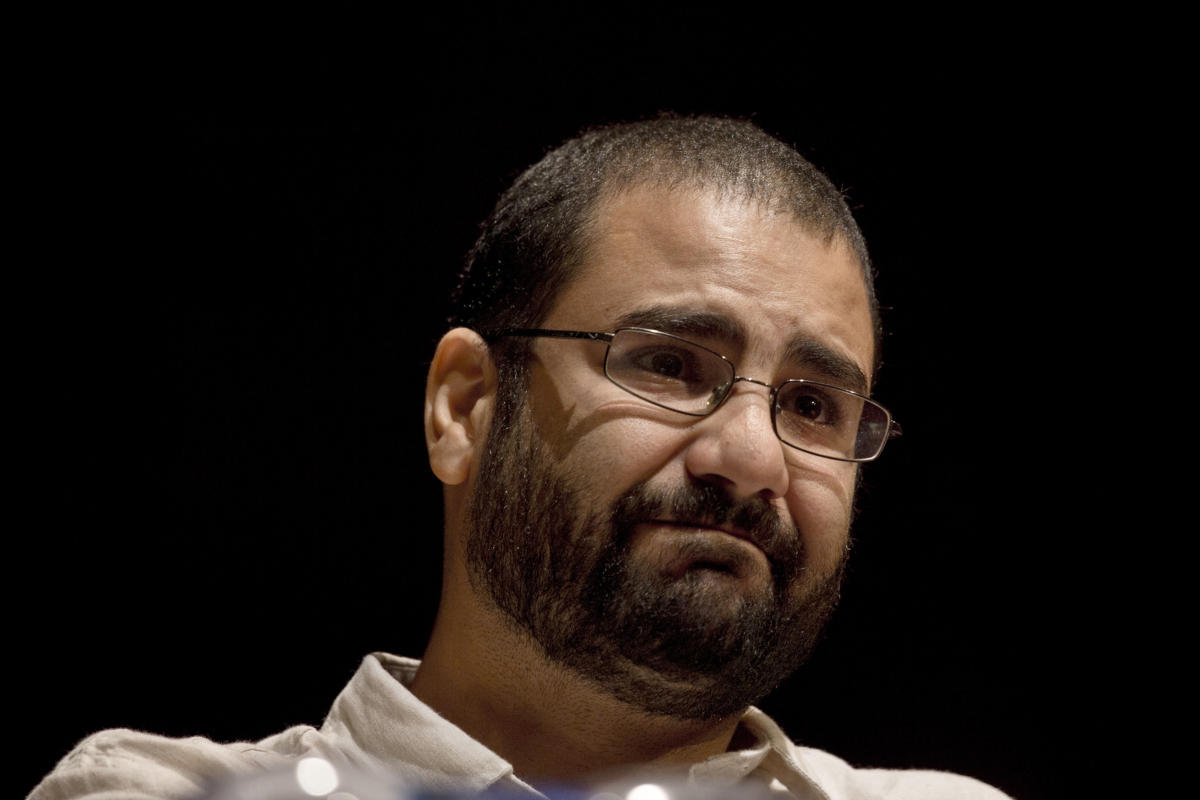
LONDON (AP) — Egypt’s most prominent imprisoned activist went on “full hunger strike”’ on Tuesday and plans to stop drinking water on the first day of the global climate summit next week, his family said.
Alaa Abdel-Fattah, an outspoken dissident and a U.K. citizen, rose to prominence with the 2011 pro-democracy uprisings that swept the Middle East and in Egypt toppled long-time President Hosni Mubarak. The 40-year old activist spent most of the past decade behind bars and his detention has become a symbol of Egypt’s return to autocratic rule.
As international spotlight focuses on Egypt ahead of the climate summit — or COP27 — in the Red Sea town of Sharm el-Sheikh, Abdel-Fattah’s family has been lobbying for his release. His sister, Sanaa Seif, has been staging a sit-in at the headquarters of Britain’s foreign ministry to push the U.K. to take action in his case.
Abdel-Fattah said in a letter to his family that he would start the “full hunger strike,” his other sister, Mona Seif, tweeted Monday.
For months, Abdel-Fattah has been on a partial hunger strike, consuming only 100 calories a day and his family is concerned for his health. He wrote that on Nov. 6, the first day of the COP27, he will also give up water.
The family, which communicates with Abdel-Fattah through weekly letters and during rare visits, says it fears that if Abdel-Fattah is not released during the climate conference, he would die without water. The family’s next visit is Nov. 17.
An Egyptian government media officer did not immediately respond to a request for comment on Tuesday. Authorities have previously denied that Abdel-Fattah is on a hunger strike.
He was first sentenced in 2014 after being convicted of taking part in an unauthorized protest and allegedly assaulting a police officer. He was released in 2019 after serving a five-year term but was rearrested later that year in a crackdown that followed rare anti-government protests.
In December 2021, he was sentenced to another five-year term on charges of spreading false news. He also faces separate charges of misusing social medial and joining a terrorist group — a reference to the banned Muslim Brotherhood, which authorities declared a terrorist organization in 2013.
In April, the family announced he had obtained British citizenship through his mother, Laila Soueif, a math professor at Cairo University who was born in London. The family said then that they sought a British passport for Abdel-Fattah as a way out of his “impossible ordeal.”
The government of President Abdel Fattah el-Sissi, a U.S. ally with deep economic ties to European countries, has been relentlessly silencing dissenters and clamping down on independent organizations for years with arrests and restrictions. Many of the top activists involved in the 2011 uprising are now in prison, most under a draconian law passed in 2013 that effectively banned all street protests.
Ahead of the global climate conference, Egypt’s human rights record has come under increasing scrutiny, though many activists fear that the attention to Abdel-Fattah’s case will wane as soon as the conference draws to a close and world leaders return home.
“He decided that if they’re determined to keep him in prison forever, or until he dies, then at least he will decide the terms of the battle and lead the charge,” his sister Mona Seif said in a video statement posted on social media. “I can’t ask him to stop what he’s doing,”
An influential blogger, Abdel-Fattah hails from a family of political activists, lawyers and writers. His late father was one of Egypt’s most tireless rights lawyers. His sisters — also British citizens — are also political activists, and his aunt is the award-winning novelist Ahdaf Soueif.




